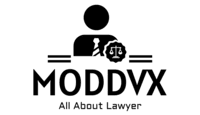Introduction:
Bankruptcy is often viewed as a last resort for individuals and businesses facing financial difficulties. However, misconceptions and myths surrounding bankruptcy can prevent people from seeking the relief they desperately need. In this article, we aim to debunk some of the most common myths about bankruptcy, shedding light on the realities of the process and the benefits it can offer to those in financial distress.
Myth #1:
Bankruptcy Means Losing Everything
One of the most prevalent myths about bankruptcy is that individuals will lose all their possessions and assets. In reality, bankruptcy laws provide exemptions that allow debtors to protect certain assets from being seized by creditors. Depending on the type of bankruptcy and the applicable state laws, debtors can typically retain essential assets such as a home, car, retirement accounts, and personal belongings.
Myth #2:
Bankruptcy Ruins Your Credit Forever
While it’s true that bankruptcy can have a negative impact on your credit score initially, it is not a permanent stain on your financial record. With responsible financial management and a proactive approach to rebuilding credit, many individuals can improve their credit score over time. In fact, some people find that their credit score improves after filing for bankruptcy, as they are able to eliminate or restructure overwhelming debts.
Myth #3:
Bankruptcy is Only for Irresponsible People
Contrary to popular belief, bankruptcy is not a reflection of moral character or financial irresponsibility. Many people who file for bankruptcy do so as a result of unforeseen circumstances such as medical emergencies, job loss, divorce, or business failure. Bankruptcy provides a legal and structured way for individuals and businesses to address overwhelming debt and regain control of their financial situation.
Myth #4:
You Can’t Get Credit After Bankruptcy
While obtaining credit may be more challenging immediately after filing for bankruptcy, it is still possible to rebuild your credit and access new lines of credit over time. Some creditors specialize in offering credit to individuals who have recently filed for bankruptcy, recognizing that they are often eager to demonstrate financial responsibility. By using credit wisely and making timely payments, you can gradually improve your creditworthiness.
Myth #5:
Bankruptcy is a One-Size-Fits-All Solution
Bankruptcy is not a one-size-fits-all solution, and there are different types of bankruptcy designed to address various financial situations. Chapter 7 bankruptcy involves liquidating assets to pay off debts, while Chapter 13 bankruptcy allows individuals to restructure debts and create a manageable repayment plan. For businesses, Chapter 11 bankruptcy enables reorganization while allowing operations to continue. The most appropriate type of bankruptcy depends on the individual or business’s financial circumstances and goals.
FAQs About Bankruptcy
Q: What is bankruptcy?
A: Bankruptcy is a legal process that allows individuals and businesses to eliminate or restructure debts under the protection of a bankruptcy court. It provides relief to debtors burdened by overwhelming debt and offers a fresh financial start.
Q: What are the different types of bankruptcy?
A: The most common types of bankruptcy for individuals are Chapter 7 and Chapter 13. Chapter 7 involves liquidating assets to pay off debts, while Chapter 13 allows individuals to restructure debts and create a manageable repayment plan. For businesses, Chapter 11 bankruptcy enables reorganization while allowing operations to continue.
Q: Will I lose all my possessions if I file for bankruptcy?
A: No, bankruptcy laws provide exemptions that allow debtors to protect certain assets from being seized by creditors. Depending on the type of bankruptcy and the applicable state laws, individuals can typically retain essential assets such as a home, car, retirement accounts, and personal belongings.
Q: How does bankruptcy affect my credit score?
A: Bankruptcy can have a negative impact on your credit score initially, but it is not a permanent stain on your financial record. With responsible financial management and a proactive approach to rebuilding credit, many individuals can improve their credit score over time.
Q: Can I get credit after filing for bankruptcy?
A: Yes, it is still possible to obtain credit after filing for bankruptcy, although it may be more challenging initially. Some creditors specialize in offering credit to individuals who have recently filed for bankruptcy, recognizing that they are often eager to demonstrate financial responsibility.
Q: Is bankruptcy only for irresponsible people?
A: No, bankruptcy is not a reflection of moral character or financial irresponsibility. Many people who file for bankruptcy do so as a result of unforeseen circumstances such as medical emergencies, job loss, divorce, or business failure.
Q: How long does bankruptcy stay on my credit report?
A: The length of time bankruptcy remains on your credit report depends on the type of bankruptcy filed. Chapter 7 bankruptcy typically stays on your credit report for ten years, while Chapter 13 bankruptcy remains for seven years.
Q: Do I need a lawyer to file for bankruptcy?
A: While it is possible to file for bankruptcy without a lawyer, it is highly recommended to seek the assistance of a qualified bankruptcy lawyer. A lawyer can provide valuable guidance throughout the bankruptcy process, ensuring that your rights are protected and helping you achieve the best possible outcome.
Q: Will bankruptcy stop creditor harassment?
A: Yes, once bankruptcy proceedings are initiated, creditors are prohibited from taking collection actions, such as lawsuits, wage garnishments, or repossessions, against the debtor. This protection from creditor harassment is one of the primary benefits of filing for bankruptcy.
Q: How can I learn more about bankruptcy and explore my options?
A: If you’re considering bankruptcy or struggling with debt, it’s essential to consult with a qualified bankruptcy lawyer. A lawyer can evaluate your financial situation, explain your options, and help you navigate the complexities of the bankruptcy process. Contact us today to schedule a consultation and take the first step toward regaining control of your financial future.
Conclusion:
Bankruptcy is a legal tool designed to provide relief to individuals and businesses burdened by overwhelming debt. By debunking common myths and misconceptions about bankruptcy, we hope to empower individuals to seek the assistance they need to regain control of their financial future. If you’re struggling with debt, don’t let myths about bankruptcy hold you back from exploring your options. Consult with a qualified bankruptcy lawyer to learn more about how bankruptcy can help you achieve a fresh financial start.



















